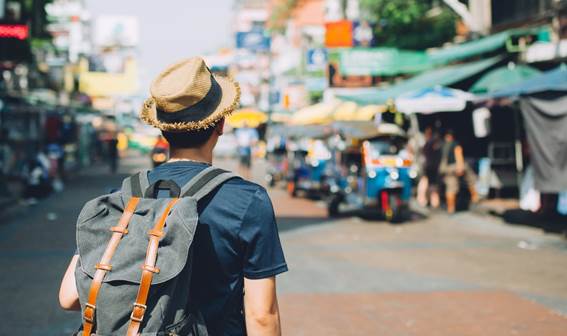CHIANG RAI, 18 January 2022: Thailand’s THB300 (USD9) travel tax, due to start this April, is a drop in the ocean compared with all the other entry costs imposed on intrepid travellers since Covid-19 disrupted our lives.
Flagged as a worthy cause, the government will use the tax to restore heritage tourist sites and fund the cost of accident insurance for tourists.

But the country’s tourism and hospitality industry is having none of that, claiming the tax is a body blow to travel confidence that is already languishing at ground zero.
On and off the Ministry of Tourism and Sports’ agenda for five years or more, the original proposal pegged the tax at THB500, levied on tourists arriving by air, land and sea. Opposition from the travel industry whittled it down to THB300 over time.
Back in pre-Covid-19 days, it would have constituted a windfall if successfully extracted from 40 million tourist arrivals. But for 2022, the tourist arrival predictions are down to 5 million, although optimists nudge the forecasts up to 15 million, which is highly unlikely. In 2021, Thailand welcomed just 200,000 foreign visitors, and if January is anything to go by, recovery is a none starter as long as the Test & Go scheme sits on the shelf.
But back to the travel tax. Most travellers will cough up the THB300 travel tax without really noticing it. It joins the THB700 airport departure tax as a cost added to airline tickets.
Land and sea arrivals will probably be able to pay the tax through an app, or the fallback will be a queue at yet another border checkpoint kiosk. More than 40 countries worldwide collect versions of the so-called tourist tax. Thailand is not alone but it is the first in Southeast Asia to tax international travellers on arrival.
Travel and hospitality industry voices are more concerned about the message the tax sends to international travellers who are already struggling with the high cost of travel to Thailand in Covid times.
A retiree tourist told me he will pay around UKP1,000 in additional costs to enter Thailand during the Covid-19 pandemic. For example, Covid-19 entry rules demand travellers buy an insurance policy with USD50,000 cover. That can cost from THB1,000 if you are in your 40s to as much as THB40,000 if you are over 70.
If you travel to Bangkok and are fully vaccinated against Covid-19, you will need to pay for alternative quarantine in a certified hotel for seven days. It will cost around THB21,000 for a package that includes meals, two PCR tests and airport transfer. But the PCR test before your board a plane to Thailand is another cost item at around THB3,500. PCR testing could add THB7,000 to THB10,500 to the cost of entering Thailand.
Even if you enter on a one-year retiree visa, you will need to buy a return fare (around TH16,000 each way). You might not use the return sector, but you must have it to show the immigration officer if they ask to see it.
Yes, the THB300 travel tax won’t break the bank, but do your sums and compare the cost of entry before Covid-19 popped its head over the parapet in January 2020 with what it costs two years later. Travel is more costly than ever, and most of the damage is attributed to entry fees linked to the pandemic. Is it too much to ask the Ministry of Tourism and Sports to suspend the travel tax until Covid-19 recedes into oblivion? Travellers deserve a small break entry costs.






